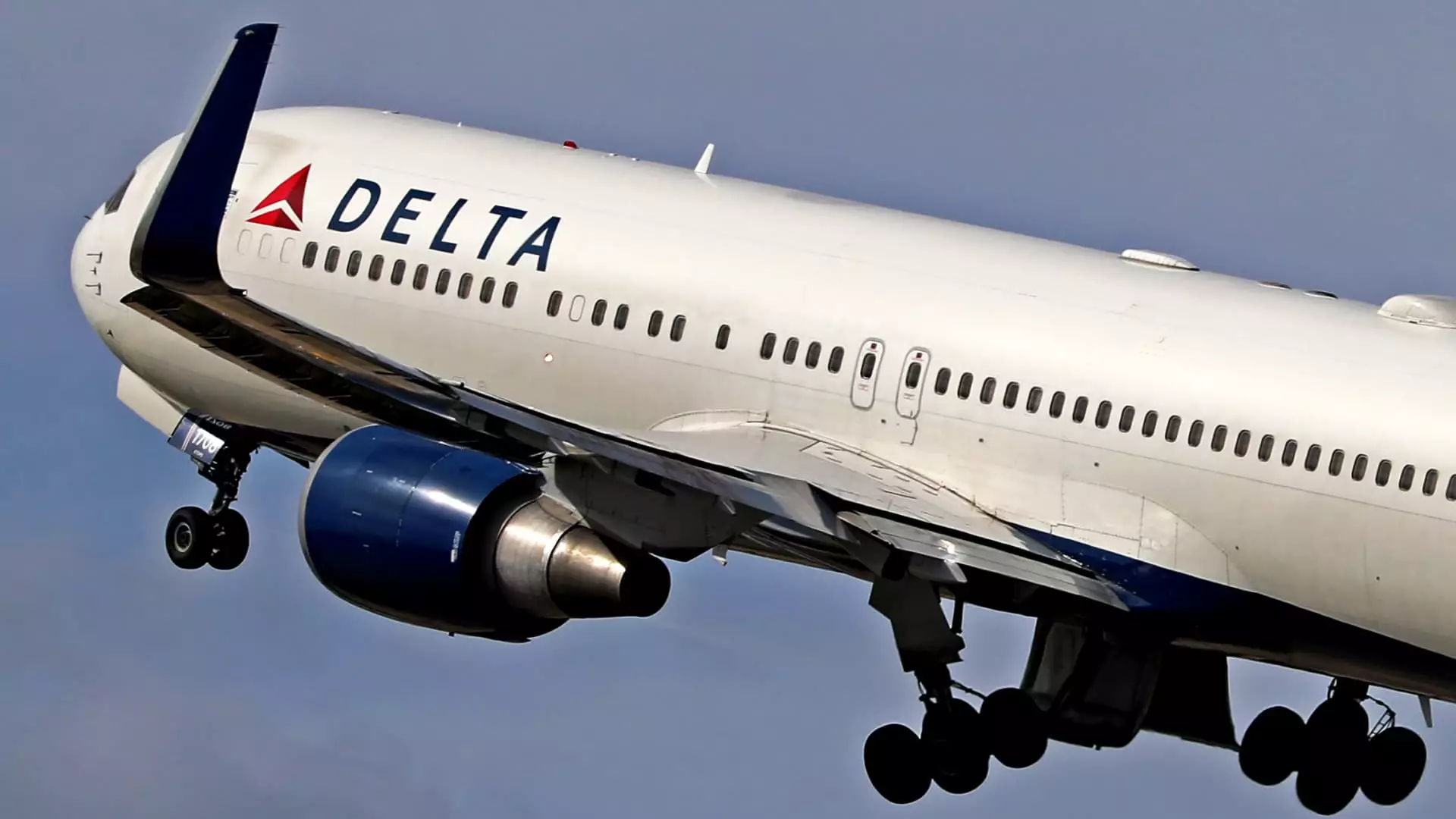The financial landscape for U.S. airlines has taken a troubling turn, as stocks are reeling from a combination of factors that suggest a shaky future. The recent downturn seems more than just a bump—it reflects deeper issues within the sector, raising urgent questions about its sustainability in a rapidly changing economic landscape. Wall Street is grappling with concerns not only about weakening travel demand but also about looming tariffs and a startling erosion of consumer confidence. The once-buzzy travel sector now feels more like a minefield.
Uncertainty Breeds Caution
Delta Air Lines, often viewed as the crown jewel of U.S. carriers, saw its shares tumble more than 2% after Jefferies downgraded its stock outlook, a decision indicative of growing skepticism among investors. This wasn’t merely a one-off move; the bank slashed its price target by a staggering 50%, a drastic revision that echoes the uncertainty shrouding the airline. As Delta attempts to pivot to more lucrative revenue streams like first-class cabins and credit card partnerships, the reality remains that price-sensitive travelers are becoming increasingly cautious. This duality of evolving strategies set against a backdrop of hardened consumer sentiment feels like a gamble that could very well backfire.
The Ripple Effect Across the Industry
Delta is not alone in this struggle. Jefferies’ decision to downgrade American Airlines and Southwest Airlines signals a broader malaise that extends beyond just one company. American Airlines also faced a 2% decline, while Southwest plunged over 5%. The region is clearly feeling the pressure, particularly with a sensitive travel demographic skittish about booking flights amid economic uncertainty. United Airlines remains the outlier, receiving a “buy” rating—but even it has not escaped the knife, experiencing a drastic slashing of its price outlook.
The Consumer Confidence Conundrum
A recent Bank of America report fuels speculation regarding spending habits that may significantly impact airline profits. While overall household spending appeared robust with a 1.5% uptick, airline spending dropped a disheartening 7.2%. This contradiction indicates that, despite a thriving economy in some sectors, consumers are becoming increasingly hesitant about discretionary travel. Comments from the Bank of America Institute suggesting that psychological factors play a considerable role underline the fragile state of consumer sentiment. Factors like adverse weather and a late Easter may complicate the picture, but they do not erase the underlying worry—people are thinking twice before committing to travel.
A Sector in Need of Redemption
The NYSE Arca Airline Index has fallen by 18%, marking the highest percentage drop since the last quarter of 2023. This downturn stands in stark contrast to the general market trends, implying that airline stocks are not just following the broader market but are perhaps symptomatic of deeper economic vulnerabilities. If the industry is to reclaim any semblance of stability, it must address not just operational efficiencies but also the psychological barriers consumers are facing when it comes to booking flights. This is not merely a transient situation; it demands immediate and actionable insights from airline leaders, requiring a shift that acknowledges these consumer realities while seeking to restore confidence.


Leave a Reply